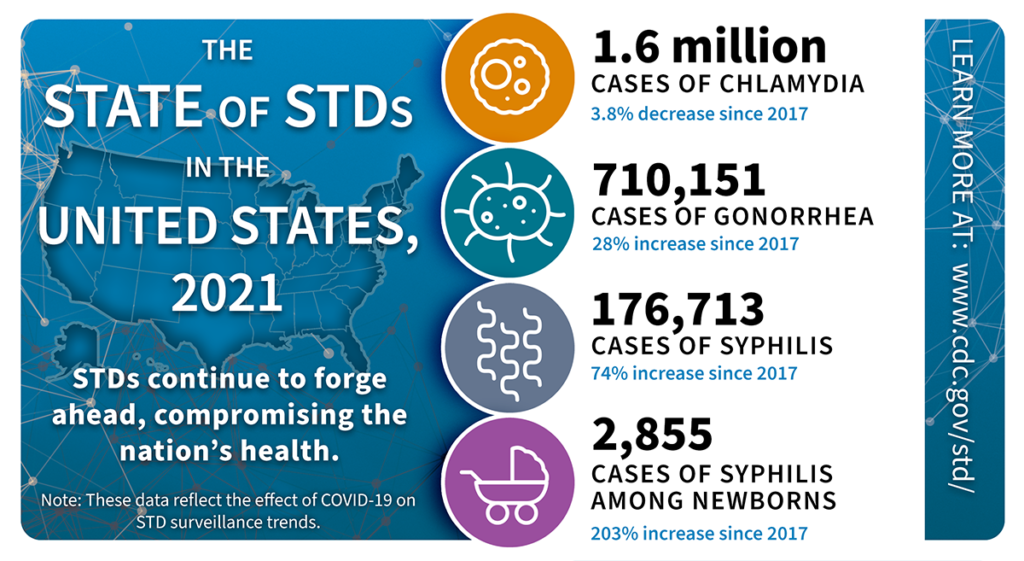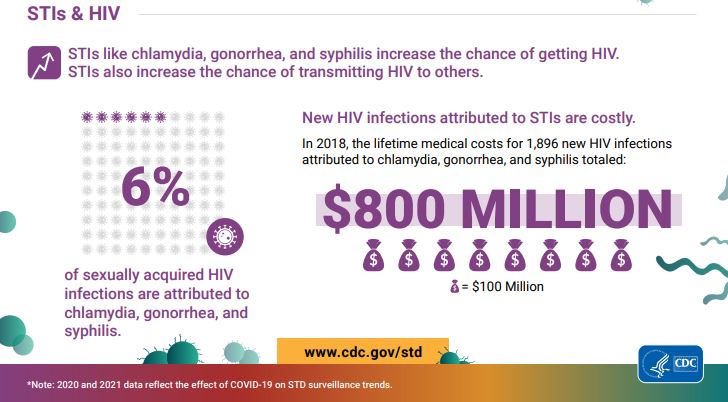STI Infections in New Jersey
According to the New Jersey Department of Health, men who have sex with men (MSM) account for a disproportionate number of new STI diagnoses in the state, including chlamydia, gonorrhea, and syphilis.
In 2019, MSM accounted for 58% of new gonorrhea diagnoses in New Jersey, despite comprising only a small percentage of the population.
MSM also accounted for 54% of new syphilis diagnoses in 2019, with a particularly high rate of infection among Black and Latino MSM.
Despite the high rates of STI diagnoses among queer individuals, many do not receive regular testing. A 2019 survey by the New Jersey Department of Health found that only 54% of queer men reported being tested for HIV in the past year, and only 31% reported being tested for other STIs.
Barriers to STI testing among queer individuals in New Jersey include a lack of access to LGBTQ-friendly healthcare providers, stigma and discrimination in healthcare settings, and financial constraints.
New Jersey does have several resources available for STI testing and prevention, including free and low-cost testing clinics, as well as online resources for finding LGBTQ-friendly healthcare providers.
Getting tested regularly for STIs is an important part of maintaining sexual health, and can help prevent the spread of STIs within queer communities. It is recommended that sexually active individuals, including queer individuals, get tested for STIs at least once a year.


Untreated STIs can cause serious issues
Increased risk of HIV transmission: Untreated STIs can increase the risk of HIV transmission, especially among MSM.
Pelvic inflammatory disease (PID): Untreated chlamydia or gonorrhea in cisgender women or trans individuals with a cervix can lead to PID, which can cause chronic pain and infertility.
Infertility: Untreated STIs can cause scarring and damage to the reproductive system, leading to infertility in both cisgender and transgender individuals.
Meningitis: Certain strains of meningitis are more common among MSM and can be spread through sexual contact. Untreated meningitis can cause serious complications such as brain damage or death.
Chronic pain: Untreated STIs can lead to chronic pelvic pain, which can have a significant impact on quality of life.
Increased risk of certain cancers: Some STIs, such as human papillomavirus (HPV), can increase the risk of certain types of cancer, including anal cancer.
Increased risk of other infections: Untreated STIs can weaken the immune system and increase the risk of other infections, such as hepatitis B or C.
Get tested early, and regularly
Early detection and treatment: Getting tested for STIs on a regular basis can help detect infections early and prevent them from developing into more serious health problems. Many STIs can be easily treated with antibiotics or antiviral medication.
Peace of mind: Getting tested regularly can help ease anxiety and provide peace of mind about your sexual health.
Preventing the spread of infections: Getting tested and treated for STIs can help prevent the spread of infections to sexual partners.
Access to information and resources: STI testing often includes counseling and education about safe sex practices, as well as information about additional resources such as HIV pre-exposure prophylaxis (PrEP) and post-exposure prophylaxis (PEP).
One of Us INC provides STI testing at your convenience: One of Us INC offers STI testing services that are convenient and confidential. Testing can be self-administered at home, and results are typically available within a few days. Our testing services are LGBTQ+ friendly and non-judgmental, and we can provide information and resources to help you maintain your sexual health.













